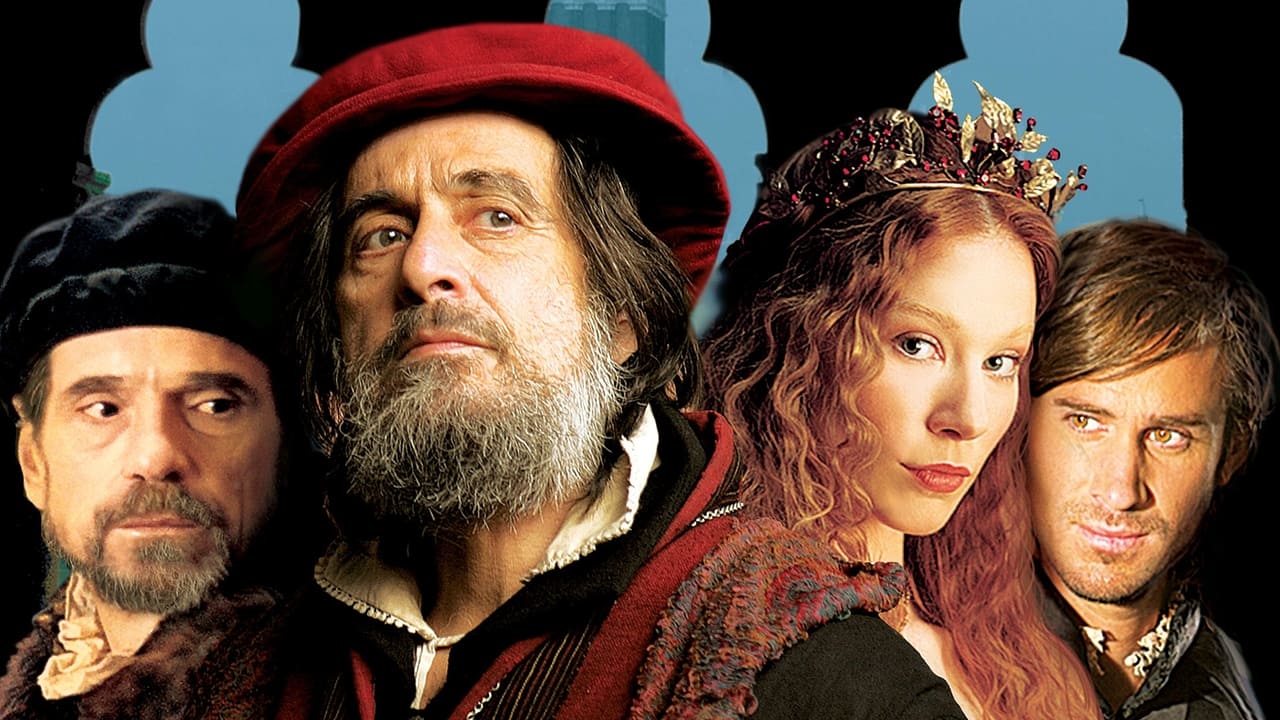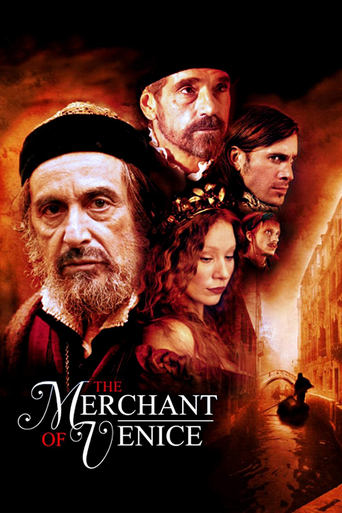

I'm sorry Al. I mean, I am stoked that you got to do Will on the big screen, I really am. I am ecstatic that it was one of my favorites and monumentally depressed that labor of loves like this only get a limited screening and small box office reviews.Who wants to see "The Merchant of Venice" anyway? So sayeth the Millennial.Clearly a lot of people do. I mean, how many centuries has it been in production? Is that were they got the name for the sports car? Who knows.The fact is that it was brilliant. Not totally true to the source, but close enough where you're going to sit back and be in Elizabethan bliss.Especially since, for us historians, films depicted so beautifully, as this one was, just reinforces the fact that Shakespeare was the Joss Wheadon of his day.It may be high brow today, but so is Dumas.The fact is, a film like "The Merchant of Venice" if done right, should give you the sense of Elizabethan pulp. You should be able to sit back and understand just how popular he was with the masses of the day. it should be funny and beautiful and dramatic and this film captured all of that. Not as action packed as Hamlet, but just as entertaining.And that was what Shakespeare tried to do, entertain us.
... View MoreThe film is an excellent rendition of Shakespeare's play. The acting is impeccable. There is one serious problem, however: the filmmakers clearly want this film to be used in classrooms, which is obvious given the teacher materials they included on their website. If this is the case, then why on earth would they add so much gratuitous female nudity throughout the film? There are several scenes where there are prostitutes and random women walking down the street whose gowns only reach below their breasts so their nipples and breasts are showing. This is extremely problematic for a film that could otherwise be immensely useful in a classroom.
... View MoreThis is a beautifully made film, and Al Pachino as Shylock is simply magnificent. I have noticed that Pachino has been taking a number of roles in Shakespeare plays, one of the others that I have seen is where he plays Richard III in Looking for Richard. Being able to effectively play a Shakespearian character is quite a task and I must say that both Pachino and Irons do a magnificent job.The setting is period, meaning that we are in Venice in the 14th century. However Shakespeare's understanding of the Venetian government is quite limited. I note he refers to the Duke of Venice, however Venice did not have a royal family per se, but was rather a republic that was ruled by an elected official (the Doge). The movie though tends to follow through with the play, though I noted that with Othello they did have the ruler of Venice dressed as the Doge would have been dressed.I will not go into details regarding the plot as I believe that the plot is quite familiar anyway. However, it really has two interlinking plots, namely Bassiano's courting of Portia, and the feud between Shylock and Antonio over the payment of a debt. Shylock wants his pound of flesh after Antonio was left temporarily destitute and unable to pay his dues.This play is all about mercy, and contrasts Shylock's unmerciful and vengeful nature with the Venetians who, at the end of the play, show Shylock mercy. However it is clear from Shylock that this is pretty much a once off event, as if they wanted to demonstrate to Shylock that they are not hypocrites. I can't say whether they treated Shylock all that badly beforehand, though it is true that Jews in Venice were treated as second class citizens.This movie is beautifully made, and appears to try to recreate Venice of the 14th Century. I note that many of the characters, when wondering the streets, will wear masks, and while it was something that passed me by the last time I saw it, when I went to Venice I noticed that there were lots of masks for sale, and suspected that the wearing of a mask while out of your house was accepted fashion. However I am unsure whether that applies with the low cut tops that we see everywhere.Another interesting this that I discovered is that in the movie Antonio and Bassiano are apparently homosexual lovers. It is suggested that in the play it is implied by never stated outright (which you probably wouldn't do in 16th Century England anyway), though it is much more noticeable in the movie. However, innocent little me didn't seem to actually notice it.
... View MoreI read the book long ago, and had so much confusions. this is not a criticism about the movie, rather the perspective of the story itself.In the story, I think the so called villain here, Shylock, was actually not the actual villain, rather an oppressed Hero. He was the one who was seeing his fellow religious believers being oppressed, prisoned, and being thrown into the rivers, wearing always a mandatory red hat of racism; he was just following his own religion peacefully and minding his own business. he was regularly being spitted on by the dominating part of the society for being a minority member, and being called many mean names in occasions. He was the one who lent huge amount of money, not for earning interest, rather in good faith to his 'hating spitter', to meet a man's non- surviving wants (wants of alluring a wealthy woman into marriage), and then faced complete default and forfeiture at the time of repayment; and moreover he was robbed of his precious wealth by the same borrowing group; the daughter he had and raised was taken away by them (during 1596 conservative traditions, whilst lady Portia was obligated to follow her family's 'husband finding tradition' and yet she did follow).And after all the unjust and undepicted pains and sufferings he had gone through for so long, then he was asking for justice in a court full of that same dominating society members shouting at him with anger and despise; faced the so called legal trial by the judgement of a bias imposter in disguise of a civil doctor. After that he was forced with trickery to give up all his remaining wealth, esteem, daughter, home, and most of all his lifelong religious belief, left all alone in the street to rot in older age with humiliation and disgrace. And the dominating unjust party carried on living wealthy and happily ever after. And all along I felt a deep sigh about this entire concluding injustice.Though for an instance Shylock acted as a merciless villain for insisting on cutting that pound of flesh; but we must not forget or disrespect all his suffered misery in the context for being raging such insanity. I also perceive Antonio to be of a moderately good manner in the court. Finally,to derive and infer from the story, with due respect, I believe most readers and viewers need to reconsider their perceptions, and give it a good thought about what was right and what was wrong. This same story still lives in reality in our modern society in evolving fashion, thus perceptions should be at least close to just.
... View More